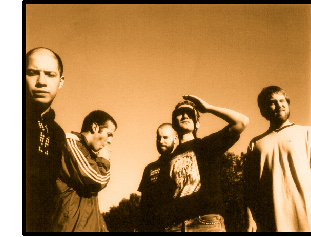
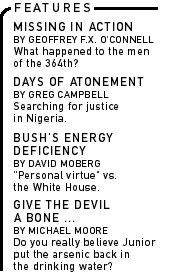
|
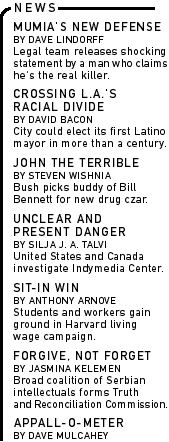
|
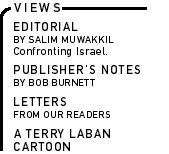
|
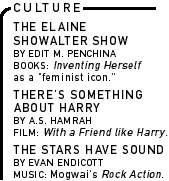
|
|
|
| |
|
|
|
Rock Action With a title borrowed from punk iconoclast Iggy Pop, one might expect Mogwai's Rock Action to be a bombastic four-chord assault; a lean, mean, rock 'n' roll machine mined from the marrow of the legendary Stooges leader. But even a cursory listen reveals quite the opposite, an album of syrup-slow, mysterious beauty that unfolds like uncharted topography and revels in endless layers of orchestral texture. Wave hello to Mogwai, the only post-rock band with a sense of humor. Or maybe they're not kidding. "Call us an art-rock punk band," leader Stuart Braithwaite once told Vanity Fair, adding that punk "has never been about tradition." So defined, punk music may sound like anything so long as it adheres to a singular goal: reanimating the corpse of corporate rock by any means necessary. In 1995, when four teenagers from the Glasgow suburbs formed Mogwai, the
After a series of singles, in 1997 the band recorded their first full-length effort for the independent label Chemikal Underground (owned by fellow Glaswegian art rockers, the Delgados). Young Team, the result of fractious sessions marked by intense internecine feuding, was an amazing debut album, a modern masterpiece of tension-and-release that reinvigorated rock's venerable quiet-LOUD dynamic for the first time since 1991's Nevermind. Unlike Nirvana, however, which was driven by Kurt Cobain's ragged vocal melodies, Mogwai sculpted wrenching emotion out of purely instrumental structures. Young Team's "Yes I am a Long Way from Home" asked, via a vocal sample, whether it was possible for music "to put a human being in a trance-like state," before answering its own question with a hypnotic bass riff, droning accordion wheezes and interlocking guitars. But before U.K. club kids could get comfortable amidst the dizzying swirl of chiming 6-strings, the song exploded into a fuzz-drenched hurricane, ripping into unsuspecting eardrums with savage abandon. As a reverent whisper at the beginning of Young Team notes: "If the stars had sound, they would sound like this." After a lineup change that added multi-instrumentalist Barry Burns to the fold (Braithwaite and John Cummings on guitar, Dominic Atchkinson on bass, and Martin Bulloch on drums), Mogwai linked up with esteemed indie producer David Fridmann to record 1999's double-album Come On Die Young. Numerous forces conspired to widen Mogwai's musical vision. Holed up in a remote location in upstate New York with nothing but Mad Dog 20/20 to comfort their livers, they worked relentlessly on the album to avoid going stir crazy. Burns' one-man-band abilities expanded Mogwai's tonal palette, adding trombone, flute and glockenspiel to the group's previously guitar-dominated soundscapes. Fridmann introduced string accompaniment and digital manipulation, and invited the band to experiment with computer-based recording. The result was a dense, difficult work that eschewed the emotionally satisfying peaks and valleys of the first LP; Come On Die Young was the black hole to Young Team's supernova. Unlike previous efforts, the band seemed satisfied to let songs ebb and flow naturally, without the jolts of distorted violence. But the album's enigmatic nature left many fans confused, and critics insisted that the group had worn out its formula and its welcome. Rock Action, Mogwai's third proper album (not including a collection of early singles, two EPs and a double-disc set of remixes), comes at a pivotal point. As they struggle to remain relevant, two major obstacles stand in Mogwai's way. The first is the inherent limitation of their sound: Because they avoid typical pop forms and vocals, their complex instrumentals risk sounding like New Age muzak for the post-shoegazer set. The second obstacle is a changing musical climate. When they first burst onto the scene, grunge wannabes ruled the world, and Mogwai's interstellar scope was a revelation. But the past five years have heard an art-rock renaissance led by Oxford's Radiohead, whose mind-blowing transformation on 1997's OK Computer and 2000's Kid A could be compared to the Beatles' evolution between Rubber Soul and Sgt. Pepper's. Radiohead signaled that rock wasn't dead after all, and heralded the arrival of sonic voyagers like Reykjavik's Sigur Rós, who offer a genuine challenge to Mogwai's epic-rock throne. So Mogwai must evolve. Rock Action is both a change in direction and an extension of the sound they have crafted over the course of their career. "Sine Wave," the opening track, is emblematic of the band's dual tendencies on this disc. The simple guitar line that introduces the song recalls moments on Come On Die Young, but the percussion, made entirely of static (reminiscent of Mark Bell's programming on Bjšrk's Homogenic), are a radical addition to the Mogwai aesthetic. A variety of inventive tones, from digitally tweaked bass to heavily filtered vocals, enter the mix layer by layer until the song attains an oppressive girth that threatens to crush the listener between his headphones. But just as the song's climax looms menacingly, a storm of gathering static arrives and washes over the entire ensemble, obscuring the mix in a dense fog of radio fuzz. The addition of live vocals on four songs is the most obvious innovation
on Rock Action, and the results are mixed. Braithwaite claims
the band's instrumental leanings were shaped by the fact that none
of them could write decent lyrics, and "Take Me Somewhere Nice"
demonstrates that they weren't being modest. "What would you On "Dial:Revenge," Mogwai enlist a guest singer, Gruff Rhys of the Super Furry Animals. The vocals (in Welsh) are effectively elegiac as they curl around melancholy acoustic guitars, and the sense of loss in Rhys' voice is reinforced by a haunting background vocal that invokes Enya without sounding the least bit lame. "Robot Chant" is a brief industrial interlude that conjures up images of a Terminator-factory churning out steel Schwarzenegger-skeletons. It's a disposable effort, but sounds remarkably fresh following "You Don't Know Jesus," a Mogwai-by-numbers track composed of iceberg-crisp riffs nicked from the files of Young Team. Fortunately, two incredible compositions follow this brief misstep. "2 Rights Make 1 Wrong" begins with a simple major chord vamp stolen from Hootie's golf bag, then twists it slowly into knots before submerging the tune in a cleansing pool of big-band brass, splashing cymbals and yearning strings. Halfway through the song, a vocoder-warped vocal appears and winds its way around a bit of gentle drum 'n' bass, creating a mutant strain of modern computer-funk. By the time a banjo enters and leads the song off into the moonset, the listener is stunned into submission by Mogwai's deep-as-the-Atlantic production. After such an epic, "Secret Pint" finishes the album off with a flawless display of restraint. The best Braithwaite performance of the album, the vocal is simultaneously sweet and sad as he intones, "Go so scared, falling down." Mogwai have been called "the first band of the 21st century" for
their ability to fashion grand symphonies from simple sonic components.
And yet their unconventional approach to rock 'n' roll strikes some
listeners as cold and aloof, obfuscating emotional connection in
favor of art-punk attitude. Can faceless sonic architects overcome
rock's cult of personality with consummate craftsmanship alone?
Rock Action is a line drawn tentatively between cult and
craft--the sound of a band letting its guard down for the first
time--and it's a beautiful thing. Evan Endicott is a music writer based in Evanston, Illinois.
He can be reached at
|


